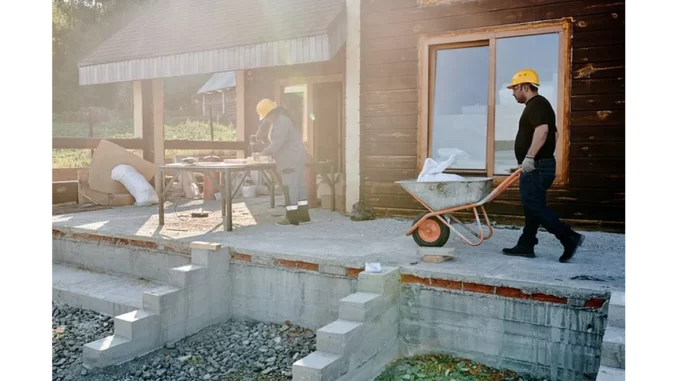
As the global imperative to combat climate change intensifies, the construction industry is at a crossroads. With buildings responsible for approximately 40% of the UK’s carbon emissions, there is mounting pressure on the sector to integrate sustainable practices. A pivotal strategy in this endeavour is the retrofitting of existing structures to bolster energy efficiency. This method not only curtails carbon emissions but also aligns seamlessly with the UK’s audacious objective of reaching net-zero emissions by 2050.
Successful low-energy building design hinges on careful planning. Focus360 Energy can help.
In this ambitious context, the NatWest Group, in conjunction with the Supply Chain Sustainability School, inaugurated an innovative retrofit skills programme in November 2023. This initiative is designed to arm professionals within the built environment with the requisite skills to execute retrofitting projects proficiently. Over the past year, the programme has surpassed its initial two-year targets, engaging 4,668 individuals and 1,844 companies, evidencing a robust demand for sustainable construction knowledge.
Retrofitting involves the enhancement of existing buildings to improve their energy performance, thereby reducing carbon emissions and elevating overall efficiency. This process holds significant importance for various reasons. Primarily, from an environmental perspective, retrofitting markedly diminishes a building’s carbon footprint. By upgrading insulation, modernising heating systems, and integrating energy-efficient technologies, structures can achieve substantial decreases in both energy consumption and emissions. Economically, energy-efficient buildings are more cost-effective to operate, resulting in lower utility expenses for occupants. This can also enhance property values and stimulate job creation within the burgeoning green economy. Additionally, retrofitting improves indoor air quality, temperature regulation, and general comfort, thereby fostering healthier and more pleasant living and working environments.
Despite these clear benefits, the industry confronts a formidable challenge: a pronounced deficit in skilled professionals needed to implement retrofitting projects at a scale necessary to meet national targets. This skills gap represents a significant barrier to progress, underscoring the necessity for comprehensive training programmes. The NatWest-supported retrofit skills initiative addresses this challenge by offering free CPD-accredited training to professionals in the built environment. The programme encompasses e-learning modules, workshops, webinars, and conferences, furnishing participants with both practical skills and technical knowledge. Collaborations with industry leaders and organisations such as the Construction Leadership Council and Historic England ensure that the training remains relevant and impactful.
In its inaugural year, the retrofit programme has achieved notable milestones. It has engaged 4,668 professionals, reflecting a strong interest in upskilling within sustainable construction practices, and witnessed active participation from 1,844 companies, underscoring the industry’s commitment to sustainability. Additionally, over 2,100 e-learning resources have been downloaded, and nearly 700 training needs assessments completed, indicating the programme’s efficacy in addressing skills gaps. These achievements illustrate an increasing appetite for sustainable practices within the construction industry. As more professionals acquire the skills necessary to deliver high-quality retrofit solutions, the sector is better equipped to address complex sustainability challenges.
The success of the retrofit programme highlights the crucial role of collaboration among industry stakeholders. By partnering with various organisations and sharing best practices, the programme has established a platform for knowledge exchange and innovation. This collaborative approach is indispensable for advancing meaningful progress in retrofitting and sustainability across the UK’s built environment. As the demand for retrofit skills continues to grow, the construction industry must remain steadfast in its commitment to upskilling its workforce. The NatWest-backed programme exemplifies the potential for training initiatives to bridge critical gaps in expertise, serving as a model for future endeavours.
Looking ahead, the construction industry stands on the brink of transformative change. The success of the retrofit skills programme in its first year signifies the industry’s readiness to adopt sustainable practices. As professionals and companies continue to engage with these training opportunities, the sector is poised to lead the charge in reducing carbon emissions and enhancing building performance. Through sustained collaboration, investment in skills development, and a commitment to innovation, the construction industry can play a pivotal role in achieving the UK’s climate objectives and fostering a more sustainable, resilient future.


Be the first to comment